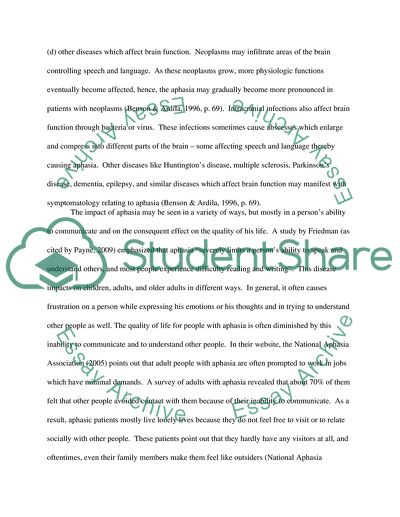Cite this document
(“Aphasia and Its Impact on an Individual's Ability to Communicate Essay”, n.d.)
Retrieved from https://studentshare.org/health-sciences-medicine/1561184-outline-aphasia-and-its-impact-on-an-individuals-ability-to-communicate-additionally-discuss-the-possible-effects-of-aphasia-on-the-person-and-their-everyday-life
Retrieved from https://studentshare.org/health-sciences-medicine/1561184-outline-aphasia-and-its-impact-on-an-individuals-ability-to-communicate-additionally-discuss-the-possible-effects-of-aphasia-on-the-person-and-their-everyday-life
(Aphasia and Its Impact on an Individual'S Ability to Communicate Essay)
https://studentshare.org/health-sciences-medicine/1561184-outline-aphasia-and-its-impact-on-an-individuals-ability-to-communicate-additionally-discuss-the-possible-effects-of-aphasia-on-the-person-and-their-everyday-life.
https://studentshare.org/health-sciences-medicine/1561184-outline-aphasia-and-its-impact-on-an-individuals-ability-to-communicate-additionally-discuss-the-possible-effects-of-aphasia-on-the-person-and-their-everyday-life.
“Aphasia and Its Impact on an Individual'S Ability to Communicate Essay”, n.d. https://studentshare.org/health-sciences-medicine/1561184-outline-aphasia-and-its-impact-on-an-individuals-ability-to-communicate-additionally-discuss-the-possible-effects-of-aphasia-on-the-person-and-their-everyday-life.


